Israeli Holiday Calendar 2014-2015 (Jewish Year 5775)
The official Israeli calendar is based on the Jewish calendar. Jewish holidays are based on the traditional Jewish lunar calendar, thus they do not occur on the same Western calendar dates each year.
Holidays and the Sabbath always begin at sundown the evening before and end after dark on the day of the holiday or Sabbath.
Most of the sectors in Israel begin the work week on Sunday and end it on Thursday. Friday is a half day for many businesses, stores, banks, schools and some public institutions. Saturday is the public day of rest. Public transportation does not run from Friday at sundown till Saturday sundown.
In the Arab sector – Friday is the day of rest. On Saturday; most business, stores, banks, schools and public transportation are open and running.
Most Jewish holidays originated in ancient times, and commemorate pivotal events in Jewish history, while at the same time they are often connected also to nature and the annual agricultural cycle. Most of these holidays have a religious basis, and Israelis celebrate them in different ways based on their degree of religious practice. Observant Jews do not do work, drive, cook, turn on lights or machinery unless there is a life threatening reason.
Two major weeklong festivals, Passover and Sukkoth, are observed on the beginning and ending days, but because schools are shut down for the rest of the week many take vacation and travel. Some holidays are secular, commemorating important events
* denotes national holidays, non work days
Dates for 2014-2015
*Begins sunset of Wednesday, September 24, 2014
Ends nightfall of Friday, September 26, 2014
Beginning of the year 5775
Good to know
Major & National holiday. Greetings/cards are expected and appropriate to send until Day of Atonement.
A two-day Holiday marks the beginning of the Jewish year by celebration and soul searching regarding actions during the previous year. Customs include family holiday meals and giving gifts. Honey and sweet foods are eaten to symbolize a sweet year to come, and foods consisting of many small parts, such as pomegranates, are served to symbolize abundance.
Day of Atonement – Yom Kippur

*Begins sunset of Friday, October 3, 2014
Ends nightfall of Saturday, October 4, 2014
Major and National holiday. A day of fasting and prayer, 10 days after the New Year. Everything is brought to a halt, the purpose is to stop all regular life activities and focus totally on repenting for transgressions during the previous year. Many, though not all, Israelis observe the fast
and attend Synagogue, while all public transportation and all traffic comes to a halt, including shutdown of airports and harbors. Radio stations and TV networks stop broadcasting. All shops, restaurants, and places of business are closed. Only emergency services are kept running. Kids take advantage of the empty streets to ride bikes.
No acknowledgement is expected, however you can wish your colleagues an easy fast – Tzum kal
Feast of Tabernacles – Sukkot

Begins sunset of Wednesday, Oct. 8, 2014
Ends nightfall of Friday, Oct. 17, 2014
*No work on October 9 and 16. Observance and work with certain restrictions on October 10 – 15.
Combination of National holiday and observance. It is also a school holiday and many families take the entire week off. Vacation from work is typically given for the first and last days of this week. Happy Holiday / Chag Shamech is an appropriate greeting, but not expected. The Main custom is eating and sleeping in a Sukka
The Sukka is a temporary structure with open slats under the sky, as a commemoration of the story of living in huts in the desert after the exodus from Egypt. Israelis enjoy family and friends socializing in the sukkot, which are typically gaily decorated.
The week culminates with Simchat Torah, celebrating the completion and renewal of the yearly cycle of reading the Bible by singing and dancing in the synagogue.
Festival of Lights – Hanukah
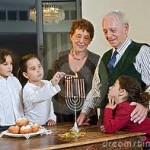
Begins sunset of Tuesday, December 16, 2014
Ends nightfall of Wednesday, December 24, 2014
School holiday, widely observed. Candle lighting celebrations and social gatherings take place every evening at nightfall. Happy Holiday / Hanukah Shamech is appropriate, but not expected.
An 8-day festival commemorating the victory of a small band of Jewish tribesmen (The Cheshmonaim) over the mighty ancient Greek army, enabling the liberation and purification of the Jewish Temple and resumption of the Jewish way of life, which the Greeks tried to destroy by forbidding certain key Jewish practices. Customs include lighting an 8-branched candelabra each night, eating fried foods to recall the miracle of only a single day’s amount of pure oil keeping the sacred lamp burning in the renewed Temple during the eight days it took to produce more oil, and children playing with tops. (In Yiddish dreidels).
Arbor Day – Tu B’Shvat
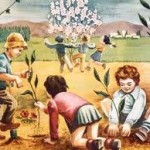
Wednesday, February 4, 2015
A minor holiday, observed secularly. Tu B’Shvat is the ‘New Year for Trees’ when trees in Israel are beginning to bear first fruits. It is marked by tree planting, nature hikes and eating dried fruits and nuts that are reminiscent of Israel’s native species. It is becoming popular to hold a vegetarian feast with nature themed texts and songs.
Feast of Esther – Purim

Begins sunset of Wednesday, March 4, 2015
Ends nightfall of Thursday, March 5, 2015
Observed, although most companies continue to work. A school holiday, most beloved by children. The holiday celebrates the triumph over persecution of the Jews in ancient Persia. This is Israel’s carnival and costume holiday
with costumed children seen in the streets and costume parties for young and old alike. Traditionally, the story of how Jewish Queen Esther successfully pleaded her people’s cause before her husband the king and got the people’s enemies, who were planning to exterminate all the Jews in the Persian empire, vanquished and punished, is read out loud and reenacted. Other customs include eating triangular pastries, filled with poppy seeds that symbolize the ears of the Purim story’s villain Haman, and sending small gifts of foods to neighbors, friends and the poor. The mood of this holiday is gay, sometimes overflowing to raucousness, and some cities hold public parades.
Passover – Pesach
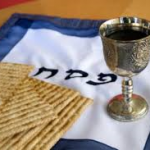
Begins sunset of Friday, April 3, 2015 Ends nightfall of Saturday, April 11, 2015
No work on April 4 and 10, 11
Observance and work with certain restrictions on April 5-9
Mimouna begins sunset April 11 and ends nightfall April 12
Combination of National holiday and observance. It is also a school holiday and many families take the entire week off. It is a weeklong holiday, with vacation the first and last days. During the same season as Easter, it celebrates the story of the liberation of the ancient Israelites from slavery in Egypt
under the leadership of the Prophet Moses. To begin the holiday, a ceremonial meal is held with family and friends at which the story is read from a special booklet called Hagaddah while eating traditional foods that symbolize aspects of slavery such as Haroset (chah-roh-seht) a mixture of ground nuts, fruits and wine that resembles the mortar the Israelites used for building the pyramids. During the entire week, leavened food, especially bread, is traditionally not eaten; instead special crackers (matzah) are eaten to remember ‘the bread of poverty’ the ancient Israelites escaping from Egypt ate because they didn’t have time to let their dough rise for real bread. Religious people clean their homes thoroughly in preparation, to ensure that there will not be even one small bit of leavening. Food services and caterers sometimes stop service during the Passover week, rather than going through the complicated process of becoming leaven free. During this week employees are usually asked not to bring bread or flour products to work. The same restrictions apply in hotels.
An additional day of celebration called Mimouna, whose roots are among North African Jews, begins the evening after the last day of the Passover period when homes are open for mutual visits, and it has been incorporated into large public events in public parks.
Happy Holiday / Chag / Pesach Shamech is an appropriate greeting
Holocaust Remembrance Day – Yom HaShoah
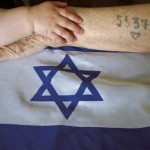
Begins sunset of Tuesday, April 14, 2015 Ends nightfall of Wednesday, April 15, 2015
A workday, punctuated by memorial services and ceremonies, this day commemorates the 6 million Jews who died in the Holocaust. At 10 am there a minute-long siren during which traffic stops and everyone stands in silence.
Marked by memorial services, and talks by survivors to educate young people and keep alive awareness of the tragedy. Television and radio reflect the somber mood of the day in their choice of music and programs. Places of entertainment, restaurants, etc. are closed. Many towns and community centers hold their own ceremonies, usually on the eve before the day.
No acknowledgement is expected.
Memorial Day – Yom HaZikaron
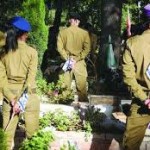
Begins sunset of Tuesday, April 21, 2015 Ends nightfall of Wednesday, April 22, 2015
A workday and school day, punctuated by memorial services and ceremonies Held the day before Independence Day, to commemorate the fallen soldiers that fought to enable Israel’s existence. At 8 p.m. on the evening before and at 11 a.m. on the day there is a minute-long siren during which everyone throughout the country stands in silence.
Many people leave work to attend memorial ceremonies for fallen soldiers at cemeteries and public institutions. The sad atmosphere of Memorial Day, reinforced by special television programs and quiet music on the radio, abruptly changes to celebration when Independence Day begins.
Commemoration day. No acknowledgement is expected
Independence Day – Yom HaAtzma’ut
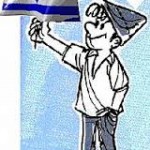
Begins sunset of Wednesday, April 22, 2015 Ends nightfall of Thursday, April 23, 2015
Independence Day is marked by exuberant parades and public events, picnics, general happiness and appreciation of the miracle of Israel’s existence. Factories and military bases open up to the public to display Israel’s achievements Friends gather for parties, barbeques and community celebrations.
No greetings required, you can wish your colleagues a Happy Independence Day on the day itself (proximity to Memorial Day makes prior greetings inappropriate)

